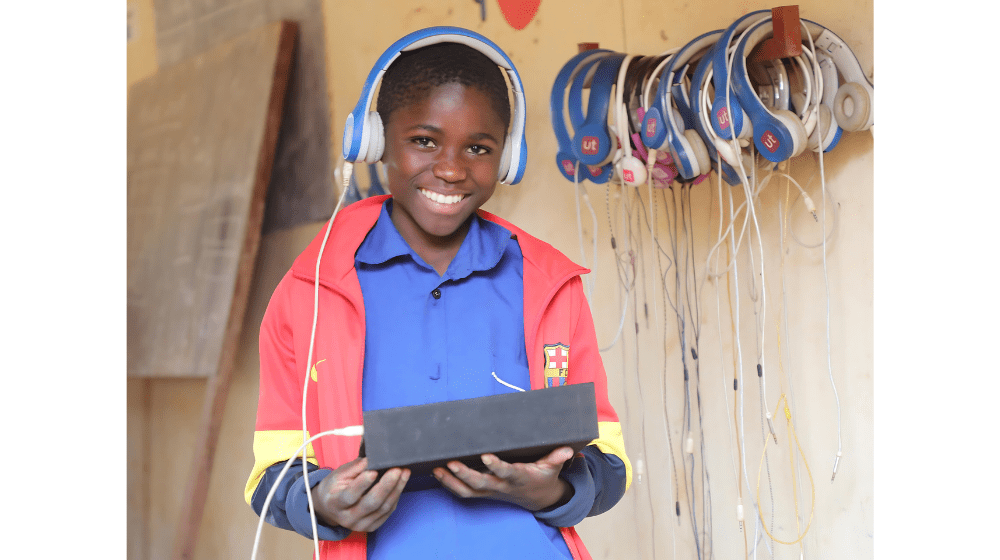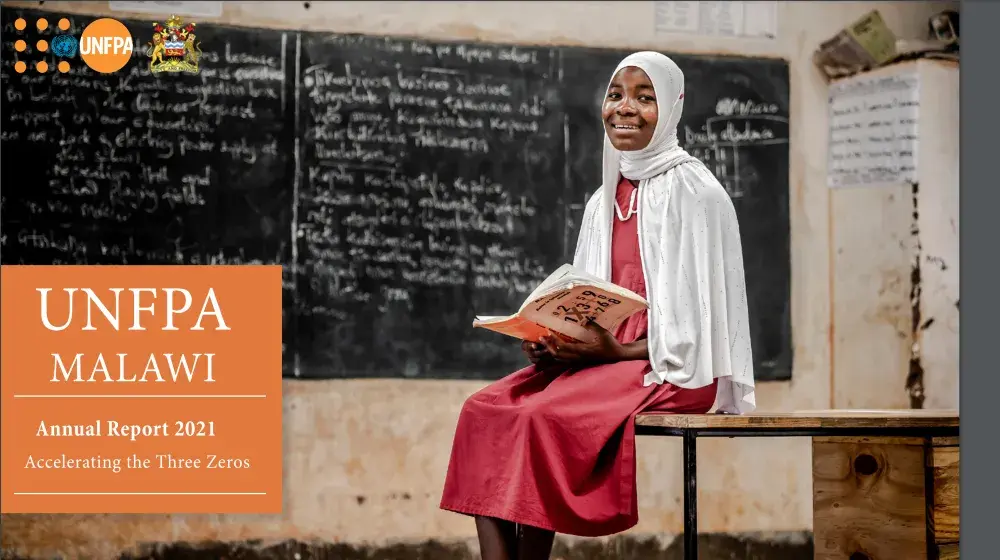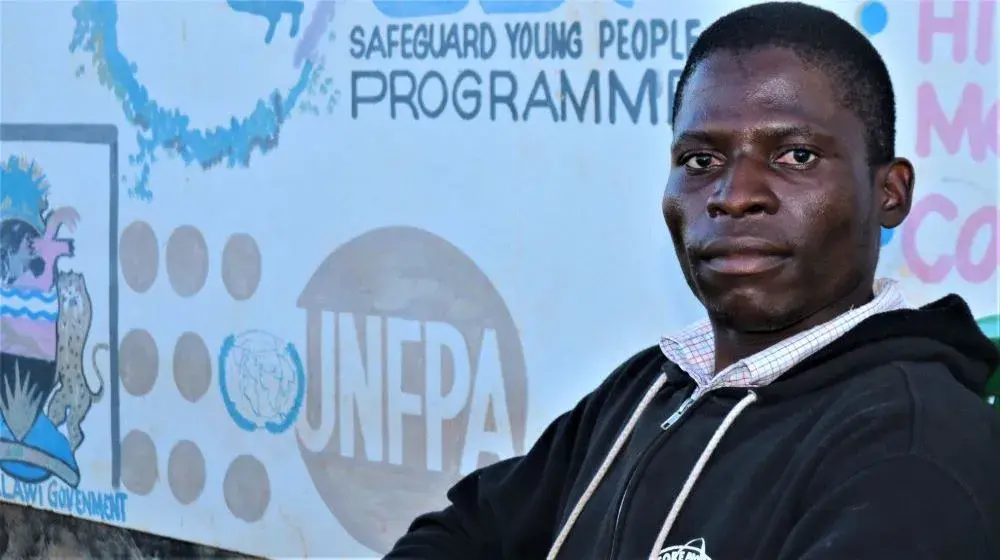MANGOCHI, Malawi - At a rural school in Mangochi, students are discovering a new way to learn with a digital app that makes accessing age-appropriate comprehensive sexuality education (CSE) both fun and engaging. This innovative approach not only enhances understanding but also transforms life skills education into an interactive and enjoyable experience.
In the past, students could only access information on life skills through formal class lessons. However, some topics were difficult to address, particularly in the local language, which made it challenging for students to fully grasp the material.
“In English, it’s easier, but in the local language, you have to be descriptive for students to understand. This meant using words that weren’t permissible in our culture as they depicted nudity,” explains Mr. Evans Kandaya, Deputy Learning Centre Coordinator at Nakhumba Primary School.
Now, with the digital app, students are guided through each module with the support of visuals and engaging videos. The CSE module contains 14 chapters, each requiring a pass mark above 50 percent.
Mr. Kandaya tells UNFPA:
If students do not achieve this pass mark, they retake the module with the teacher's support
Under the UN joint programmes on girls' education, UNFPA is implementing comprehensive sexuality education through a digital app in 10 schools in Mangochi. The initiative is aimed at empowering young people with critical knowledge about their sexual and reproductive healthand to address challenges faced by many adolescents in accessing accurate and age-appropriate sexual education.

“Beyond academic success, we’ve seen a positive change in behaviour among the students taking the CSE classes,” Mr. Kandaya notes. “The app has helped students learn much more than just about their bodies. Unlike in previous years, we’ve significantly reduced dropouts due to teenage pregnancies.”
The CSE app has been praised for lowering school dropout rates, especially among girls. Last year, Mkanda Primary School had only one dropout.
“We worked with the mother group and the parents to bring the girl back to class after she delivered,” says Mr. Kandaya. “We aim for zero dropouts in the future as we increase enrolment of girls in the CSE sessions.”
Mkanda currently has 200 students, aged 10-15 years, attending the CSE lessons. To help teachers deliver these lessons better, UNFPA, through the UN Joint Programmes for Girls' Education (UNJPGE), provided capacity building on CSE lesson delivery.
“After the training, I became more comfortable handling topics I previously struggled with,” says Mr. Kandaya.
The app is designed with user-friendly features, tailored to meet the needs of the youth, ensuring they are equipped with the knowledge to make informed decisions about their health and well-being, while also promoting gender equality and their rights.
“Since this initiative started, we’ve seen more students reporting issues ranging from gender-based violence to general abuse,” Mr. Kandaya explains. “Some cases occur within school premises, but most are from the communities. We work with the mother group to follow up, and if there’s gross abuse, we hand the cases to the community police.”
Shanil Sherika, a 10-year-old student, has greatly benefitted from the CSE digital app classes.

“I struggled with my life skills class, but since joining the CSE classes, I can now understand almost all the topics,” she says. “Last term, I didn’t do well, but this time I’m confident I’ll score higher grades because the CSE sessions have helped me a lot.”
Besides improving her knowledge, Shanil says the sessions have boosted her self-confidence.
“I wasn’t good at public speaking,” she recalls. “But after learning about assertiveness, I’ve grown in confidence and even joined the debate club at school.”
Bashil Dausi, 12, never misses a session of the CSE digital app because he enjoys the video tutorials.
“When I don’t understand a topic, I replay the video until I’m satisfied I know the content,” he says. “I also like how the characters in the videos explain the topic. They’re so funny, and it makes learning enjoyable.”
Joseph Scott, Communications Analyst





